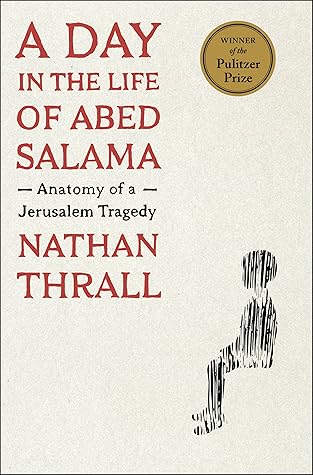More on this book
Community
Kindle Notes & Highlights
Read between
April 14 - April 29, 2024
Now Ghazl pulled the necklace out of her pocket, placed it in Abed’s palm, and for a heart-stopping moment held her delicate fingers against his hand. It was the only time they touched.
Empty Palestinian homes were quickly given to new Jewish immigrants to ensure that the original owners could not return.
It looked to her like the end of the world.
It was to the entire society, to every mother, father, and grandparent, all of whom knew or would come to learn that they were powerless to protect their children.
Some of them were too young to remember the violence of the 1990s and the Second Intifada, yet they seemed to be more racist than older generations.
“It doesn’t matter if you’re on the left or the right. The fact that someone’s celebrating people’s death requires us to stop for a moment and ask, How the hell did we get here?”
“One time, a grain of wheat fell in love and when he came back, he’d been turned into flour.”
If endless grief was the price of holding on to the fading memories of his son, Abed was willing to pay it. It was in the pain of remembering Milad that Abed kept him near.
The Quran says that his eyes turned white—he went blind—from his sorrow.


